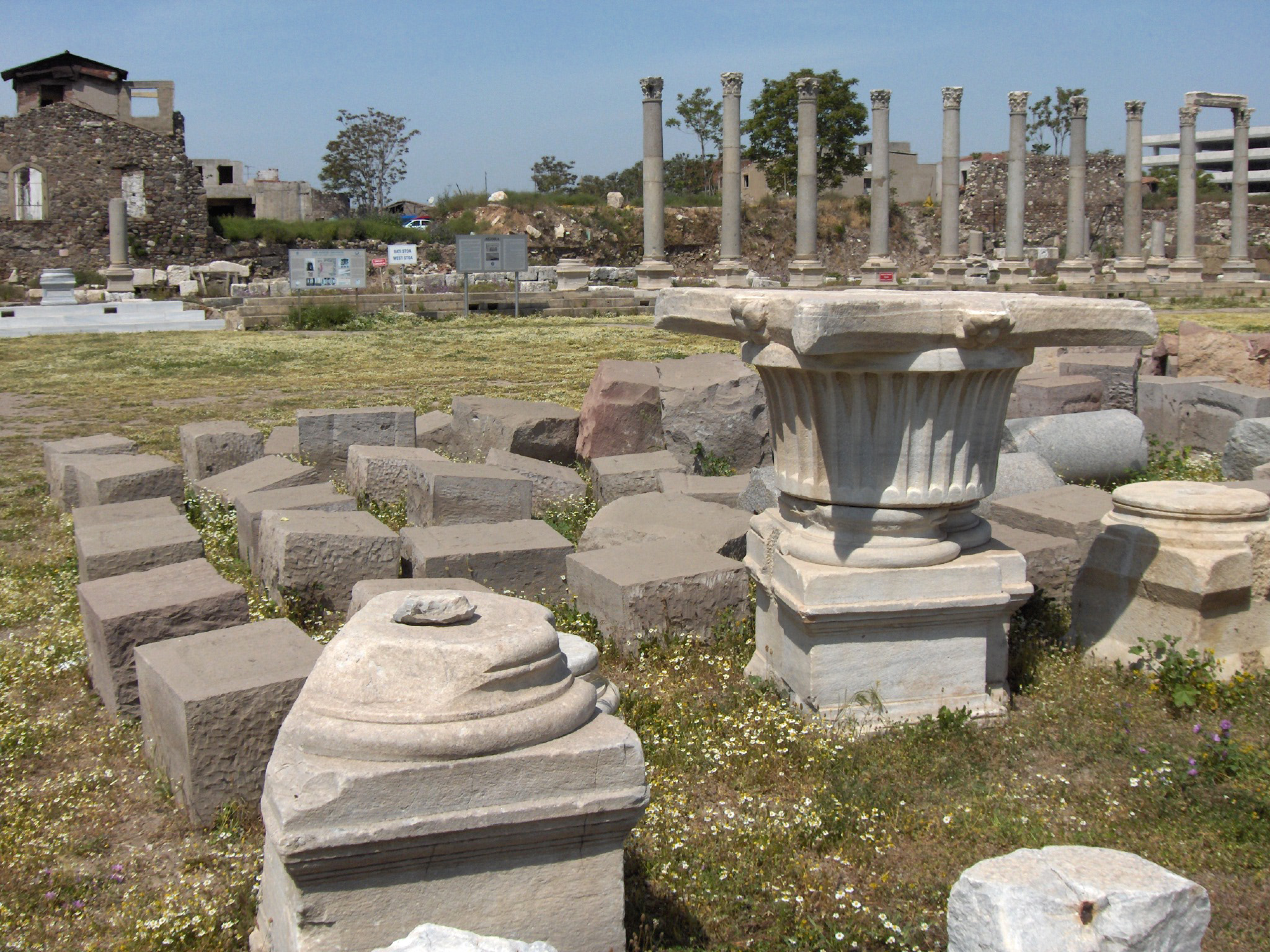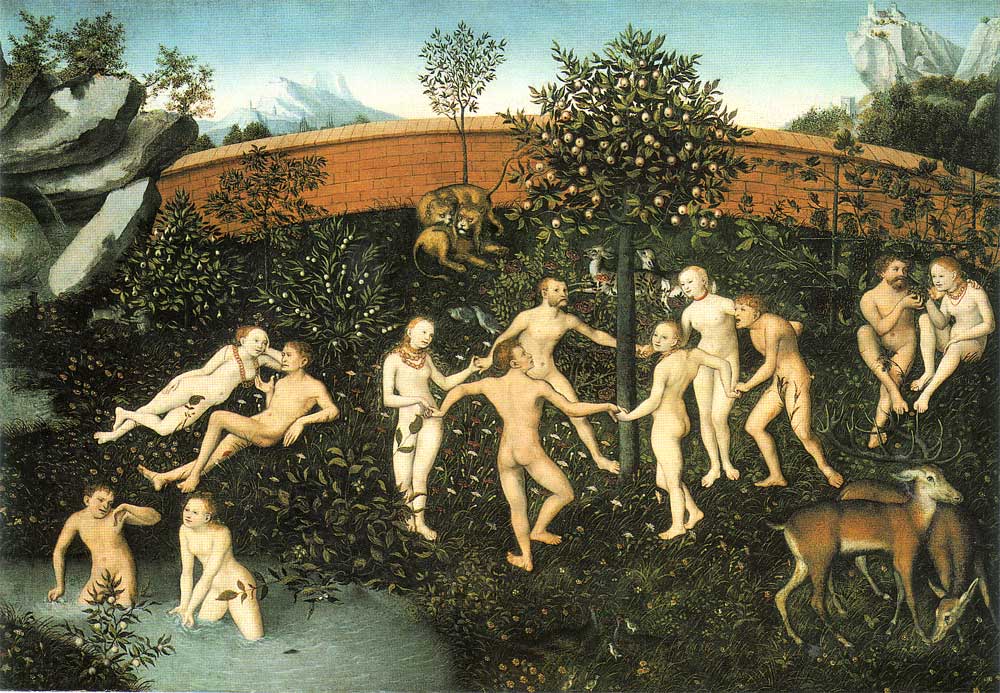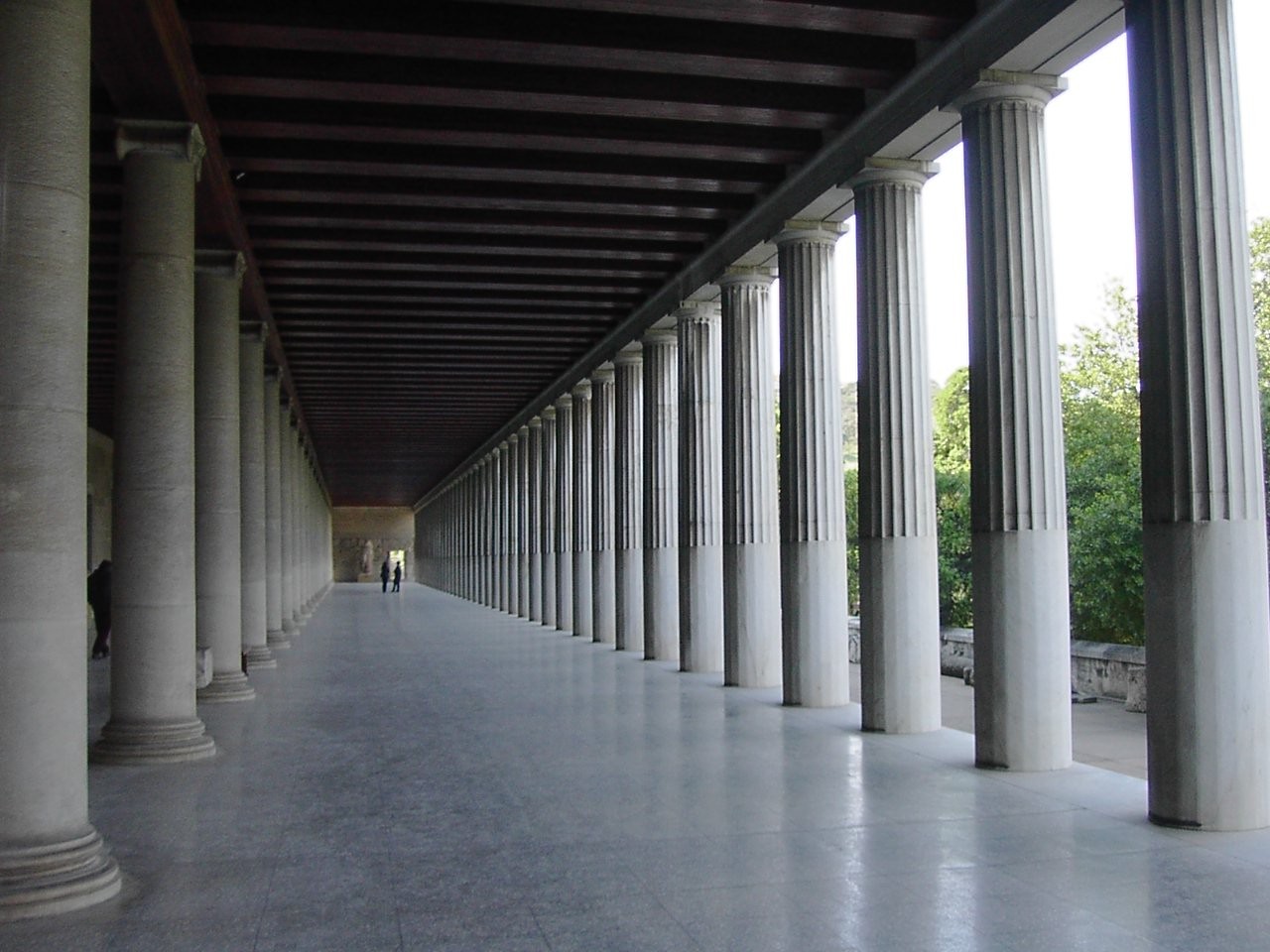|
Works And Days
''Works and Days'' ()The ''Works and Days'' is sometimes called by the Latin translation of the title, ''Opera et Dies''. Common abbreviations are ''WD'' and ''Op'' for ''Opera''. is a didactic poem written by ancient Greek poet Hesiod around 700 BC. It is in dactylic hexameter and contains 828 lines. At its center, the ''Works and Days'' is a Almanac, farmer's almanac in which Hesiod instructs his brother Perses in the agricultural arts. Scholars have seen this work against a background of agrarian crisis in mainland Greece, which inspired a wave of Greek colonies, colonial expeditions in search of new land. In the poem, Hesiod also offers his brother extensive moralizing advice on how he should live his life. ''Works and Days'' is perhaps best known for its two mythological aetiology, aetiologies for the toil and pain that define the human condition—the story of Prometheus and Pandora, and the so-called Ages of Man, Myth of Five Ages. Synopsis In ''Works and Days'', Hesi ... [...More Info...] [...Related Items...] OR: [Wikipedia] [Google] [Baidu] [Amazon] |
Aeolis
Aeolis (; ), or Aeolia (; ), was an area that comprised the west and northwestern region of Asia Minor (modern-day Turkey), mostly along the coast, and also several offshore islands (particularly Lesbos), where the Aeolian Greek city-states were located. Aeolis incorporated the southern parts of Mysia, and is bounded by it to the north, Ionia to the south, and Lydia to the east. Geography Aeolis was an ancient district on the western coast of Asia Minor. It extended along the Aegean Sea from the entrance of the Hellespont (now the Dardanelles) south to the Hermus River (now the Gediz River). It was named for the Aeolians, some of whom migrated there from Greece before 1000 BC. Aeolis was, however, an ethnological and linguistic enclave rather than a geographical unit. The district often was considered part of the larger northwest region of Mysia. History According to Homer's ''Odyssey'', Odysseus, after his stay with the Cyclopes, reached the floating island of Aeolia, wh ... [...More Info...] [...Related Items...] OR: [Wikipedia] [Google] [Baidu] [Amazon] |
Theogony
The ''Theogony'' () is a poem by Hesiod (8th–7th century BC) describing the origins and genealogy, genealogies of the Greek gods, composed . It is written in the Homeric Greek, epic dialect of Ancient Greek and contains 1,022 lines. It is one of the most important sources for the understanding of early Greek cosmology. Descriptions Hesiod's ''Theogony'' is a large-scale synthesis of a vast variety of local Greece, Greek traditions concerning the gods, organized as a narrative that tells how they came to be and how they established permanent control over the cosmos. It is the first known Greece, Greek mythical cosmogony. The initial state of the universe is Chaos (mythology), chaos, a dark indefinite void considered a divine primordial condition from which everything else appeared. Theogonies are a part of Greek mythology which embodies the desire to articulate reality as a whole; this universalizing impulse was fundamental for the first later projects of speculative theorizing ... [...More Info...] [...Related Items...] OR: [Wikipedia] [Google] [Baidu] [Amazon] |
Silver Age
The Ages of Man are the historical stages of human existence according to Greek mythology and its subsequent interpretatio romana, Roman interpretation. Both Hesiod and Ovid offered accounts of the successive ages of humanity, which tend to progress from an original, long-gone age in which humans enjoyed a nearly divine existence to the current age of the writer, in which humans are beset by innumerable pains and evils. In the two accounts that survive from Ancient Greece and Rome, this degradation of the human condition over time is indicated symbolically with metals of successively decreasing value (but increasing hardness). Hesiod's Five Ages The Greeks, Greek poet Hesiod (between 750 and 650 BC) outlined his Five Ages in his poem ''Works and Days'' (lines 109–201). His list is: * Golden Age – The Golden Age is the only age that falls within the rule of Cronus. Created by the immortals who live on Olympus, these humans were said to live among the gods and freely mi ... [...More Info...] [...Related Items...] OR: [Wikipedia] [Google] [Baidu] [Amazon] |
Golden Age
The term Golden Age comes from Greek mythology, particularly the ''Works and Days'' of Hesiod, and is part of the description of temporal decline of the state of peoples through five Ages of Man, Ages, Gold being the first and the one during which the Golden Race of humanity ( ''chrýseon génos'') lived. After the end of the first age was the Silver age, Silver, then the Bronze Age (mythology), Bronze, after this the Greek Heroic Age, Heroic age, with the fifth and current age being Iron Age (mythology), Iron. By extension, "Golden Age" denotes a period of primordial peace, harmony, ecological stability, stability, and prosperity. During this age, peace and harmony prevailed in that people did not have to work to feed themselves for the earth provided food in abundance. They lived to a very old age with a youthful appearance, eventually dying peacefully, with spirits living on as "guardians". Plato in ''Cratylus (dialogue), Cratylus'' (397 e) recounts the golden race of humans ... [...More Info...] [...Related Items...] OR: [Wikipedia] [Google] [Baidu] [Amazon] |
Myth Of The Ages
The Ages of Man are the historical stages of human existence according to Greek mythology and its subsequent Roman interpretation. Both Hesiod and Ovid offered accounts of the successive ages of humanity, which tend to progress from an original, long-gone age in which humans enjoyed a nearly divine existence to the current age of the writer, in which humans are beset by innumerable pains and evils. In the two accounts that survive from Ancient Greece and Rome, this degradation of the human condition over time is indicated symbolically with metals of successively decreasing value (but increasing hardness). Hesiod's Five Ages The Greek poet Hesiod (between 750 and 650 BC) outlined his Five Ages in his poem ''Works and Days'' (lines 109–201). His list is: * Golden Age – The Golden Age is the only age that falls within the rule of Cronus. Created by the immortals who live on Olympus, these humans were said to live among the gods and freely mingled with them. Peace and ha ... [...More Info...] [...Related Items...] OR: [Wikipedia] [Google] [Baidu] [Amazon] |
Lucas Cranach D
Lucas or LUCAS may refer to: People * Lucas (surname) * Lucas (given name) Arts and entertainment * Luca Family Singers, or the Lucas, a 19th-century African-American singing group * Lucas, a 1960s Swedish pop group formed by Janne Lucas Persson * Lucas (album), ''Lucas'' (album) (2007), an album by Skeletons and the Kings of All Cities * Lucas (1986 film), ''Lucas'' (1986 film), an American romantic-comedy teen film * Lucas (2021 film), ''Lucas'' (2021 film), a Spanish thriller drama film * Lucas (novel), ''Lucas'' (novel) (2003), by Kevin Brooks Organisations * Lucas Industries, a former British manufacturer of motor industry and aerospace industry components * Lucasfilm, an American film and television production company * LucasVarity, a defunct British automotive parts manufacturer, successor to Lucas Industries Places Australia * Lucas, Victoria Mexico * Cabo San Lucas, Baja California United States * Lucas, Illinois * Lucas, Iowa * Lucas County, Iowa * Lucas, Kansas * ... [...More Info...] [...Related Items...] OR: [Wikipedia] [Google] [Baidu] [Amazon] |
Elpis (mythology)
In Greek mythology, Elpis () is the minor goddess (daimon) of hope, about which the Greeks had ambivalent feelings. She was never the centre of a cult, as was Spes, her Roman equivalent, and was chiefly the subject of ambiguous Greek aetiological myths. Hesiod's ''Works and Days'' Elpis was the remaining item enclosed in Pandora's box (or jar), the best known form of the myth found in Hesiod’s ''Works and Days''. There Hesiod expands upon the misery inflicted on mankind through the curiosity of Pandora. She had brought with her as a wedding gift from heaven a storage jar but when this was opened it released a host of human ills before the lid could be secured again. Only Hope was left within her unbreakable house, she remained under the lip of the jar and did not fly away. Before he could Pandora replaced the lid of the jar. This was the will of aegis-bearing Zeus the Cloudgatherer. Based on Hesiod's description, there has been debate whether Elpis was only a delusive ... [...More Info...] [...Related Items...] OR: [Wikipedia] [Google] [Baidu] [Amazon] |
Gnomic Poetry
Gnomic poetry consists of meaningful sayings put into verse to aid the memory. They were known by the Greeks as gnomes (cf. the Greek adjective γνωμικός (''gnomikos'') "appertaining to an opinion or aphorism"). A ''gnome'' was defined by the Elizabethan critic Henry Peacham as "a saying pertaining to the manners and common practices of men, which declareth, with an apt brevity, what in this our life ought to be done, or not done". It belongs to the broad family of wisdom literature, which expresses general truths about the world. Topics range over the divine and secular, from moral aphorisms to hierarchical social relationships. Ancient Greek gnomic literature The gnomic poets of Greece, who flourished in the 6th century BC, were those who arranged series of sententious maxims in verse. These were collected in the 4th century, by Lobon of Argos, an orator, but his collection has disappeared. Hesiod's ''Works and Days'' is considered to be one of the earliest works of t ... [...More Info...] [...Related Items...] OR: [Wikipedia] [Google] [Baidu] [Amazon] |
Agora
The agora (; , romanized: ', meaning "market" in Modern Greek) was a central public space in ancient Ancient Greece, Greek polis, city-states. The literal meaning of the word "agora" is "gathering place" or "assembly". The agora was the center of the athletic, artistic, business, social, spiritual, and political life in the city. The Ancient Agora of Athens is the best-known example. Origins Early in Greek history (10th–4th centuries BC), free-born citizens would gather in the agora for military duty or to hear statements of the ruling king or council. Later, the agora also served as a marketplace, where merchants kept stalls or shops to sell their goods amid Arcade (architecture), arcades. This attracted artisans who built workshops nearby. From these twin functions of the agora as a political and a commercial spot came the two Greek verbs , ''agorázō'', "I shop", and , ''agoreúō'', "I speak in public". Ancient Agora of Athens The Ancient Agora of Athens was situat ... [...More Info...] [...Related Items...] OR: [Wikipedia] [Google] [Baidu] [Amazon] |
Eris (mythology)
In Greek mythology, Eris () is the goddess and personification of strife and discord, particularly in war, and in the ''Iliad'' (where she is the "sister" of Ares the god of war). According to Hesiod she was the daughter of primordial Nyx (Night), and the mother of a long list of undesirable personified abstractions, such as Ponos (Toil), Limos (Famine), Algea (Pains) and Ate (Delusion). Eris initiated a quarrel between Hera, Athena and Aphrodite, which led to the Judgement of Paris and ultimately the Trojan War. Eris's Roman equivalent is Discordia. According to Hesiod, there was another Eris, separate and distinct from Eris the daughter of Nyx, who was beneficial to men. Etymology The name derives from the noun ''eris'', with stem ''erid-'', which means "strife, discord" and is of uncertain etymology; connections with the verb "to raise, stir, excite" and the proper name have been suggested. R. S. P. Beekes sees no strong evidence for this relation and excludes th ... [...More Info...] [...Related Items...] OR: [Wikipedia] [Google] [Baidu] [Amazon] |
Frederick Stuart Church - Opened Up A Pandora's Box
Frederick may refer to: People * Frederick (given name), the name Given name Nobility = Anhalt-Harzgerode = * Frederick, Prince of Anhalt-Harzgerode (1613–1670) = Austria = * Frederick I, Duke of Austria (Babenberg), Duke of Austria from 1195 to 1198 * Frederick II, Duke of Austria (1219–1246), last Duke of Austria from the Babenberg dynasty * Frederick the Fair (Frederick I of Austria (Habsburg), 1286–1330), Duke of Austria and King of the Romans = Baden = * Frederick I, Grand Duke of Baden (1826–1907), Grand Duke of Baden * Frederick II, Grand Duke of Baden (1857–1928), Grand Duke of Baden = Bohemia = * Frederick, Duke of Bohemia (died 1189), Duke of Olomouc and Bohemia = Britain = * Frederick, Prince of Wales (1707–1751), eldest son of King George II of Great Britain = Brandenburg/Prussia = * Frederick I, Elector of Brandenburg (1371–1440), also known as Frederick VI, Burgrave of Nuremberg * Frederick II, Elector of Brandenburg (1413–1470), Margra ... [...More Info...] [...Related Items...] OR: [Wikipedia] [Google] [Baidu] [Amazon] |
Zeus
Zeus (, ) is the chief deity of the List of Greek deities, Greek pantheon. He is a sky father, sky and thunder god in ancient Greek religion and Greek mythology, mythology, who rules as king of the gods on Mount Olympus. Zeus is the child of Cronus and Rhea (mythology), Rhea, the youngest of his siblings to be born, though sometimes reckoned the eldest as the others required disgorging from Cronus's stomach. In most traditions, he is married to Hera, by whom he is usually said to have fathered Ares, Eileithyia, Hebe (mythology), Hebe, and Hephaestus.Hard 2004p. 79 At the oracle of Dodona, his consort was said to be Dione (Titaness/Oceanid), Dione, by whom the ''Iliad'' states that he fathered Aphrodite. According to the ''Theogony'', Zeus's first wife was Metis (mythology), Metis, by whom he had Athena.Hesiod, ''Theogony'886900 Zeus was also infamous for his erotic escapades. These resulted in many divine and heroic offspring, including Apollo, Artemis, Hermes, Persephone, D ... [...More Info...] [...Related Items...] OR: [Wikipedia] [Google] [Baidu] [Amazon] |






